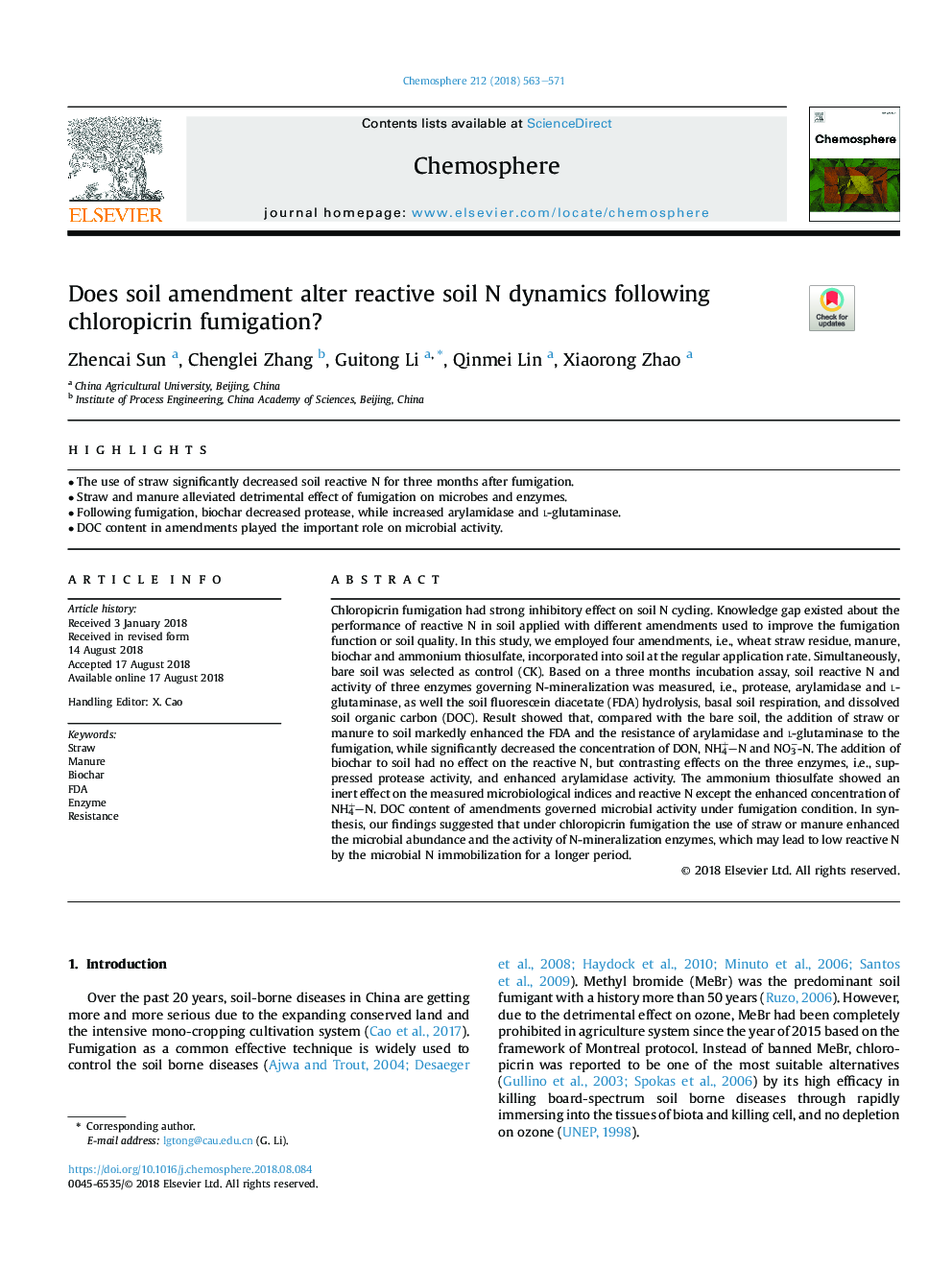| Article ID | Journal | Published Year | Pages | File Type |
|---|---|---|---|---|
| 10130281 | Chemosphere | 2018 | 9 Pages |
Abstract
Chloropicrin fumigation had strong inhibitory effect on soil N cycling. Knowledge gap existed about the performance of reactive N in soil applied with different amendments used to improve the fumigation function or soil quality. In this study, we employed four amendments, i.e., wheat straw residue, manure, biochar and ammonium thiosulfate, incorporated into soil at the regular application rate. Simultaneously, bare soil was selected as control (CK). Based on a three months incubation assay, soil reactive N and activity of three enzymes governing N-mineralization was measured, i.e., protease, arylamidase and l-glutaminase, as well the soil fluorescein diacetate (FDA) hydrolysis, basal soil respiration, and dissolved soil organic carbon (DOC). Result showed that, compared with the bare soil, the addition of straw or manure to soil markedly enhanced the FDA and the resistance of arylamidase and l-glutaminase to the fumigation, while significantly decreased the concentration of DON, NH4+N and NO3â-N. The addition of biochar to soil had no effect on the reactive N, but contrasting effects on the three enzymes, i.e., suppressed protease activity, and enhanced arylamidase activity. The ammonium thiosulfate showed an inert effect on the measured microbiological indices and reactive N except the enhanced concentration of NH4+N. DOC content of amendments governed microbial activity under fumigation condition. In synthesis, our findings suggested that under chloropicrin fumigation the use of straw or manure enhanced the microbial abundance and the activity of N-mineralization enzymes, which may lead to low reactive N by the microbial N immobilization for a longer period.
Related Topics
Life Sciences
Environmental Science
Environmental Chemistry
Authors
Zhencai Sun, Chenglei Zhang, Guitong Li, Qinmei Lin, Xiaorong Zhao,
